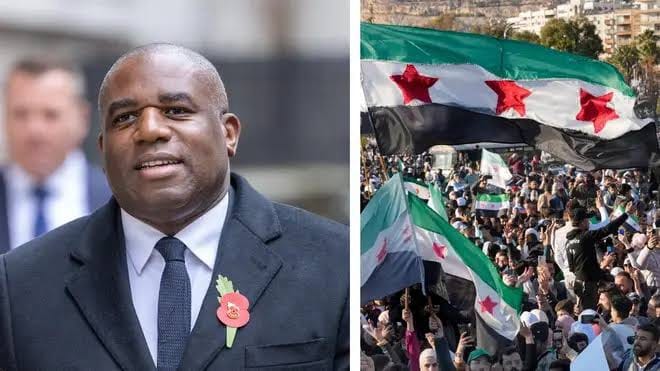UK pledges £50m aid for Syrians following Assad’s fall
The UK has committed £50 million in humanitarian aid to support Syrians across the Middle East in the wake of Bashar al-Assad’s regime collapse.

The UK has committed £50 million in humanitarian aid to support Syrians across the Middle East in the wake of Bashar al-Assad’s regime collapse.
This emergency funding, aimed at addressing urgent needs within Syria and among refugees in Lebanon and Jordan, will be delivered through UN and NGO agencies, according to the UK Foreign Office.

The announcement follows a high-level meeting in Aqaba, Jordan, where ministers and delegates from the UK, US, France, Germany, and Arab Contact Group nations joined forces with the EU and UN. The talks emphasized the need for a “non-sectarian and representative government” in Syria, alongside protecting human rights, ensuring humanitarian access, eliminating chemical weapons, and combating terrorism.
“The UK urges the transitional government to adhere to these principles to build a more hopeful, secure, and peaceful Syria,” the Foreign Office stated on Sunday.
The £50 million aid package includes £30 million earmarked for food, shelter, and emergency healthcare within Syria, £10 million for the World Food Programme (WFP) in Lebanon, and £10 million for the WFP and UNHCR in Jordan. Additionally, £120,000 will be allocated to the Organisation for the Prohibition of Chemical Weapons (OPCW).
This decisive intervention comes just a week after rebel group Hayat Tahrir al-Sham (HTS) launched a rapid offensive, leading to the regime’s collapse. The UK and its allies are now navigating how to address the role of HTS, whose leader Ahmad al-Sharaa, formerly known as Mohammed al-Golani, has sought to distance the group from its al-Qaida ties.
Despite the fall of Assad, concerns remain over a potential power vacuum that could destabilize the region or enable the resurgence of extremist groups like the so-called Islamic State.
Foreign Secretary David Lammy described Assad’s ousting as “a once-in-a-generation chance” for Syria. “We’re committed to supporting the Syrian people as they chart a new course, first by providing £50 million in new food, healthcare, and aid to support the humanitarian needs of vulnerable Syrians. Second, by working diplomatically to help secure better governance in Syria’s future,” he said.
Lammy highlighted this weekend’s international talks as a key moment in shaping Syria’s path forward. “It is vital that the future Syrian government brings together all groups to establish the stability and respect the Syrian people deserve,” he added.
Labour leader Sir Keir Starmer, addressing a virtual G7 meeting on Friday, stressed caution amid celebrations of Assad’s downfall. “The fall of Assad’s brutal regime should be welcomed, but we must be cautious about what comes next,” he warned.
In a statement issued Thursday, G7 leaders reiterated their commitment to supporting a new Syrian government that ensures “respect for the rule of law, universal human rights, including women’s rights, the protection of all Syrians, including religious and ethnic minorities, transparency, and accountability.”
As Syria enters this critical transitional phase, international focus remains on ensuring a stable, inclusive, and peaceful future for its people.














